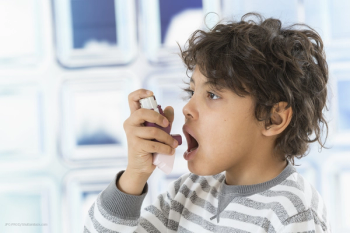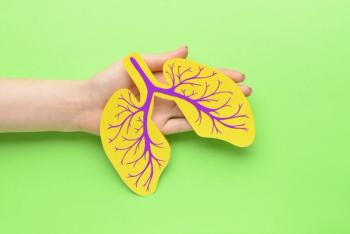
IL-13 in People with Allergic Asthma May Offer Some Protection Against Severe COVID
University of North Carolina researchers report that interleukin-13, responsible for inflammation and severe asthma symptoms, may have properties that fend off the SARS-CoV-2 virus that causes COVID-19.
Many people with chronic respiratory conditions are at high risk of developing severe disease from infection with SARS-CoV-2, the virus that causes COVID-19. However, epidemiologists have found that individuals with allergic asthma are a peculiar exception. They are less susceptible to severe COVID than the general population.
Allergic asthma is a type of severe asthma typically triggered by allergens, such as pet dander, mold, and pollen. Individuals with this type of asthma have high levels of a cytokine called interleukin (IL)-13. In allergic asthma, IL-13 is responsible for increased inflammation and severe asthma symptoms. However, with COVID-19, this same cytokine may help protect from severe disease.
Scientists at the University of North Carolina at Chapel Hill sought to discover the mechanism by which this population is protected from severe COVID. Co-first authors and lead researchers Cameron Morrison and Caitlin Edwards and their colleagues reported their findings in March in the
According to the authors, SARS-CoV-2 uses angiotensin-converting enzyme 2 (ACE2) receptors to penetrate host cells. ACE2 is present in ciliated cells, which play a role in moving mucus and clearing inhaled particles from the lungs. Using electron microscopy, the researchers found that virus-infected ciliated cells shed from respiratory surfaces and provided a reservoir for viral transmission. This shedding also facilitates the movement of infected cells to deeper lung tissues, resulting in severe disease.
Further experimentation showed that infected cells were depleted of a mucus protein called MUC5AC, which is secreted to trap invading viruses and prevent transmission. Patients with allergic asthma are known to overproduce MUC5AC, and the cytokine IL-13 increases the secretion of MUC5AC in the lungs when triggered by asthma allergens. The researchers also found that IL-13 reduced ACE2 expression, thereby reducing the amount of virus inside cells and viral transmission between cells.
The authors conclude that their findings indicate that IL-13 hinders viral entry into cells, replication, and spread of the virus. This inhibits the virus from moving deeper into the lungs and causing severe COVID. Although IL-13 cannot be used as treatment due to its pro-inflammatory properties, the authors believe their research can pave the way for finding new targets for therapeutic agents.
Newsletter
Get the latest industry news, event updates, and more from Managed healthcare Executive.























